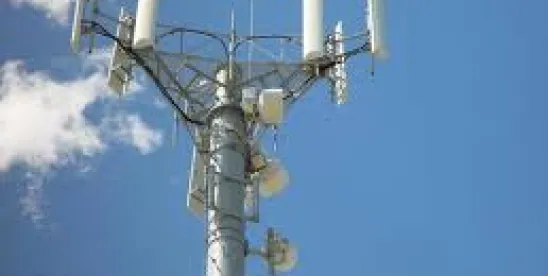You’ve probably heard some of the hullabaloo regarding the FCC’s new call blocking proposal. What’s it really all about? Glad you asked.
As the battle against robocalls shifts into high gear the FCC could soon empower wireless carriers to overcome the biggest obstacle to successfully blocking robocalls: consumers who won’t opt in to call blocking programs.
Stay with me now.
Labeling the principle problem with existing robocall blocking tools as “consumer inertia,” the FCC has determined that consumers continue to complain about robocalls despite being unwilling to opt-in to solutions that are already available to stop them. So the FCC this week will consider whether to let the wireless carriers do the work for you and may just be on the verge of empowering those carriers to block calls they deem “unwanted”—whether you ask them to or not.
Although this may not sound all that remarkable, the evolution here is actually quite extraordinary.
Quick background: ever since the Communications Act of 1934 was enacted, many telcos were considered common carriers—meaning they had to connect every call faithfully regardless of content or desirability. So that means if I want to call my mother Verizon has to connect that call without trying to determine whether she wants to hear from me or not (of course she does—probably.) The inability of carriers to “censor” phone calls lead to people doing things like calling complete strangers to pitch them cruiseline tickets using random or sequential number generators which, in turn, lead to the creation of the TCPA back in 1991. But as we’ve reported time and time again the TCPA, and its private right of action, has done nothing to stop the robocall epidemic. Something more, if not entirely different, is required.
So the FCC is now re-thinking the whole carriers-have-to-connect-every-call thing in an effort to stop unwanted robocalls before they hit your phone in a way the TCPA never could. Notably, wireless carriers have blocked spam text messages for years. And—as the FCC observed back in December, 2018 in a ruling finding text messages to be information services—we receive relatively few spam text messages as a result.
Well, what if the carriers could do the same thing with phone calls? This has clearly been on the FCC’s mind for a little while now. For instance, back in 2015 the FCC reaffirmed that carriers could, indeed, monitor and block phone calls in addition to text messages—but only if the consumer specifically opted-in to that program. As the FCC very clearly stated at the time—consumers had to exercise their option to block calls “through an informed opt-in process.” But while this ruling empowered carriers to start investing in call blocking technologies, consumer “intertia” lead to only relatively few consumers actually opting in to using these technologies as they were rolled out. That meant that consumer complaints about robocalls continued even as solutions sat unused on their phones.
All of this has lead the FCC to (likely) take further action and re-think its previous suggestion that call blocking services can only be offered on an opt-in basis. As written, the Commission’s new proposed declaratory ruling—which will be considered this week and is likely to be adopted—would allow carriers to enroll consumers in call blocking tools automatically, thereby assuring that tools to prevent unwanted robocalls aren’t sitting unused while consumer complaints about robocalls continue to rise.
The impact of the FCC’s proposed ruling would be crystal clear: “voice service providers may offer consumers call blocking through an opt-out process.”
How are these algorithms going to decide what calls you do and do not want to receive you ask? Good question. The FCC’s proposal notes some examples that may be effective. The examples include analytics based on : i) calls made in large bursts; ii) short calls; iii) calls that aren’t being answered very often; iv) and numbers that have been complained about or have been spoofed or have come to the attention of regulators in the past. Or maybe they’ll do something else entirely—as written, the FCC’s proposed list is not “exhaustive”— although the carriers are supposed to let consumers know “how it chooses to block calls.”
The only criteria actually mandated by the FCC is that carriers must rely on “reasonable analytics” to block calls, and that has caused the hullabaloo. Some folks are concerned that their wanted calls will be improperly blocked by carriers using such “reasonable analytics.” To this the FCC counters, “to the extent certain callers claim that consumers do indeed want to receive calls from them, we believe the ability for consumers to opt out of call blocking programs adequately addresses such concerns.” That, of course, will be difficult for industries that rely on phone calls to get by. Indeed, weighing such concerns by callers, even the TRACED Act promises to allow callers who have been “adversely affected” by call blocking to seek redress.
There may a silver lining for callers here, however. Notably, as part of its proposed rulemaking for a safeharbor to protect carriers that inadvertently block wanted calls, the FCC notes that certain calls will be treated as “critical” and cannot be blocked. The Commission is seeking comment on the scope of “critical” calls and is already weighing whether calls by schools, doctors, hospitals, alarm companies and others (mortgage companies? debt collectors?) might be deemed “critical” and, therefore, unblockable.
So a window of opportunity remains cracked open for those who feel that the calls they make are worthy of the “critical” designation and ought to get through to wireless phone users, regardless of what the algorithms think.
At bottom, the FCC may soon empower the wireless carriers to block our calls for us so that we can all stop complaining about all these robocalls we keep getting. That probably means we’ll just start complaining about all the important phone calls we’re missing– but that’s a problem for another day.
And now you get it!
Enjoy the silence TCPAWorld.




 />i
/>i

